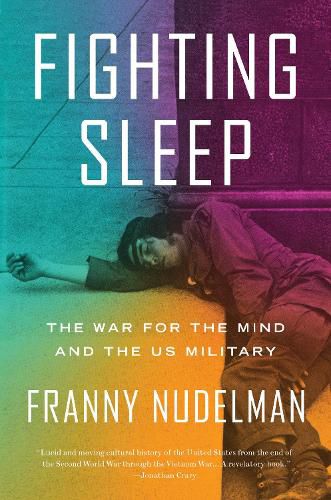Readings Newsletter
Become a Readings Member to make your shopping experience even easier.
Sign in or sign up for free!
You’re not far away from qualifying for FREE standard shipping within Australia
You’ve qualified for FREE standard shipping within Australia
The cart is loading…






On 21 April, 1971, hundreds of Vietnam veterans fell asleep on the National Mall, having fought the courts for the right to sleep in public as part of their week-long demonstration. When the Supreme Court denied their petition, veterans decided to break the law and turned sleep into a form of direct action.
During and after WWII, military psychiatrists used sleep therapies to treat an epidemic of traumatised soldiers who suffered from combat fatigue. Inducing deep and twilight sleep in clinical settings, they studied the effects of war violence on the mind and developed the techniques of brainwashing that would weaponise both memory and sleep. In the Vietnam era, radical veterans reclaimed the authority to interpret their own traumatic symptoms-nightmares, flashbacks, insomnia-and pioneered new methods of protest. In Sleeping Soldiers, Franny Nudelman recounts the struggle over sleep in the decades following WWII, arguing that the sleep of soldiers was instrumental to the development of military science, professional psychiatry, and anti-war activism. Traversing the fields of military and mainstream psychiatry, popular and institutional film, documentary sound technology, brain warfare, and postwar social movements, she demonstrates that sleep, far from passive, empty, or null, is a site of contention and a source of political agency.
$9.00 standard shipping within Australia
FREE standard shipping within Australia for orders over $100.00
Express & International shipping calculated at checkout
On 21 April, 1971, hundreds of Vietnam veterans fell asleep on the National Mall, having fought the courts for the right to sleep in public as part of their week-long demonstration. When the Supreme Court denied their petition, veterans decided to break the law and turned sleep into a form of direct action.
During and after WWII, military psychiatrists used sleep therapies to treat an epidemic of traumatised soldiers who suffered from combat fatigue. Inducing deep and twilight sleep in clinical settings, they studied the effects of war violence on the mind and developed the techniques of brainwashing that would weaponise both memory and sleep. In the Vietnam era, radical veterans reclaimed the authority to interpret their own traumatic symptoms-nightmares, flashbacks, insomnia-and pioneered new methods of protest. In Sleeping Soldiers, Franny Nudelman recounts the struggle over sleep in the decades following WWII, arguing that the sleep of soldiers was instrumental to the development of military science, professional psychiatry, and anti-war activism. Traversing the fields of military and mainstream psychiatry, popular and institutional film, documentary sound technology, brain warfare, and postwar social movements, she demonstrates that sleep, far from passive, empty, or null, is a site of contention and a source of political agency.